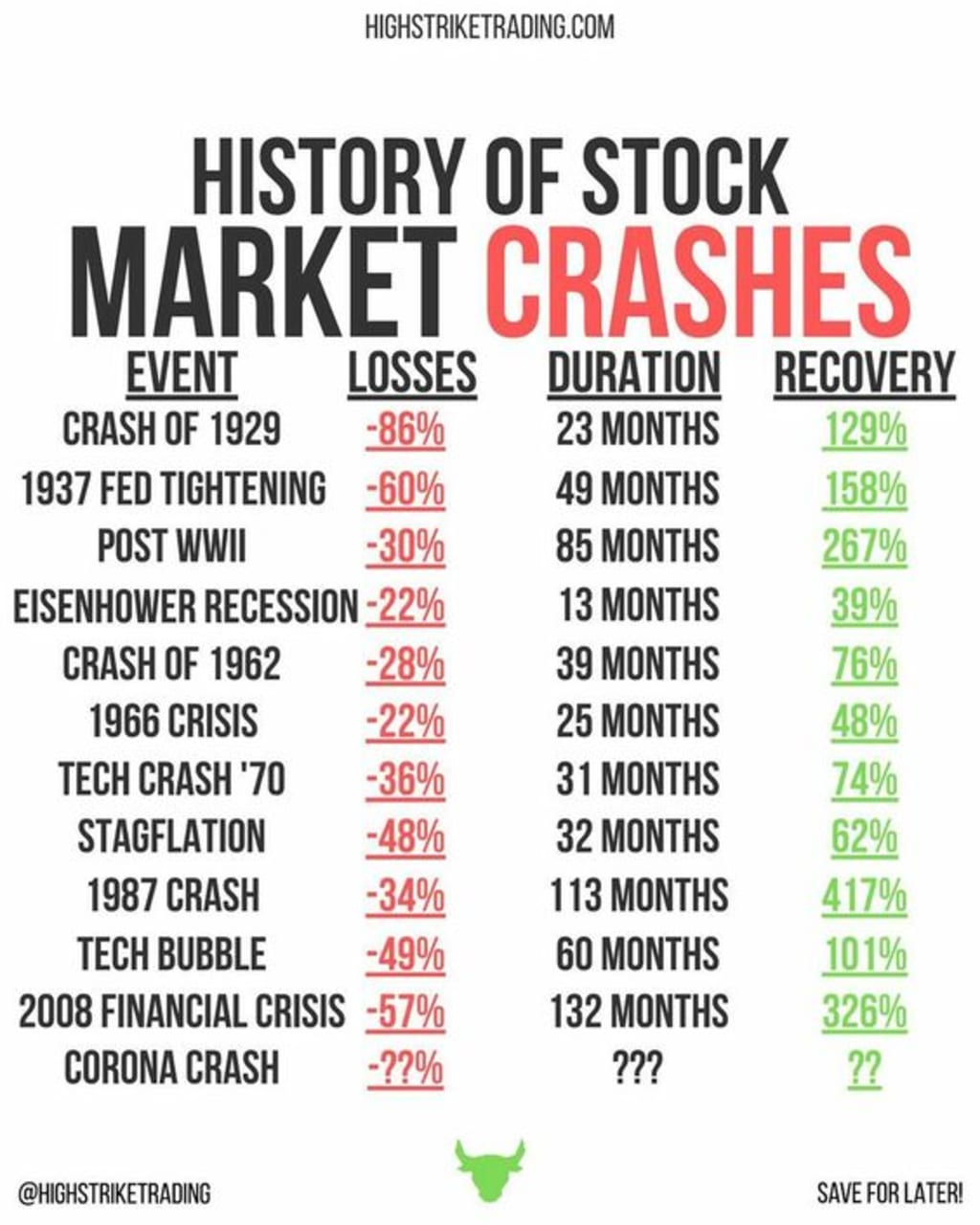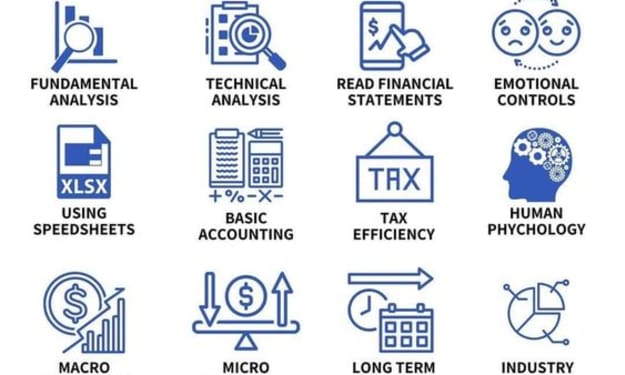The History of Stock Market Crashes and Their Recovery Durations
Examining the Length of Time it Took for the Stock Market to Recover from Major Crashes, from the Great Depression to COVID-19 Pandemic.

The stock market is a vital component of any economy, and its crashes can have a lasting impact on investors, businesses, and the general public. While the stock market can offer significant returns, it also poses a significant risk to investors. In this article, we will examine some of the most significant stock market crashes in history and the length of time it took for the market to recover from each one.
The Great Depression (1929-1942)
The Great Depression was the most severe economic crisis in American history, triggered by the Wall Street Crash of 1929. The stock market crashed in October 1929, and the Dow Jones Industrial Average (DJIA) lost over 80% of its value by 1932. It took until 1942 for the stock market to recover fully, more than a decade after the crash. The Great Depression was characterized by widespread unemployment, bank failures, and a sharp decline in economic activity, which had lasting effects on the U.S. economy.
Black Monday (1987)
Black Monday, which occurred on October 19, 1987, was a significant stock market crash that saw the DJIA fall by over 22%. While the crash was sudden and significant, the market recovered quickly, with the DJIA reaching its pre-crash level within just over a year. Black Monday was caused by a combination of factors, including computerized trading systems, high levels of debt, and international economic concerns.
Dot-Com Crash (2000-2002)
The Dot-Com Crash occurred from 2000 to 2002 and was triggered by the collapse of many internet-based companies. During the late 1990s, investors had poured billions of dollars into these companies, despite many of them being unprofitable. When the market finally corrected, many investors lost their entire investments, and the stock market experienced a significant downturn. The recovery from the Dot-Com Crash took around four years, with the market not returning to pre-crash levels until 2004.
Global Financial Crisis (2008-2009)
The Global Financial Crisis was a stock market crash that occurred in 2008, triggered by a combination of factors, including subprime lending, excessive debt, and complex financial instruments. The crash led to a widespread economic recession and had profound social and economic consequences for countries around the world. It took around five years for the stock market to recover fully from the Global Financial Crisis, with the DJIA reaching its pre-crash level in 2013.
COVID-19 Pandemic (2020)
The COVID-19 pandemic triggered a significant stock market crash in March 2020, with the DJIA falling by over 20%. The pandemic caused widespread economic disruption, with many businesses forced to shut down or significantly reduce operations. While the stock market recovered relatively quickly, with the DJIA reaching pre-crash levels by August 2020, the pandemic continues to have significant economic and social consequences.
In conclusion, the recovery time from a stock market crash can vary significantly, depending on the severity of the crash and the underlying economic conditions. The Great Depression was the most significant economic crisis in American history, and it took over a decade for the stock market to recover fully. On the other hand, Black Monday was a sudden and significant crash, but the market recovered quickly, with the DJIA reaching pre-crash levels within a year. The Dot-Com Crash took around four years to recover fully, while the recovery from the Global Financial Crisis took around five years. The COVID-19 pandemic triggered a significant stock market crash, but the market recovered relatively quickly, with the DJIA reaching pre-crash levels within six months.
Investors should be aware of the risks associated with investing in the stock market and should always be prepared for the possibility of a market crash. While it's impossible to predict when a crash will occur, investors can take steps to minimize their risk, such as diversifying their portfolio, investing for the long term, and avoiding high-risk investments.
It's also essential for policymakers and regulators to be aware of the potential for market crashes and to take steps to mitigate the risk. For example, after the 2008 financial crisis, many countries implemented regulatory reforms to improve the resilience of the financial system and reduce the risk of future crises.
Moreover, stock market crashes can have far-reaching social and economic consequences beyond the financial sector. They can lead to widespread job losses, decreased consumer spending, and a decline in business confidence, which can further exacerbate economic problems.
The recovery time from a stock market crash also depends on the response of policymakers and regulators. After the Global Financial Crisis, for example, many central banks implemented monetary policies to stimulate economic growth, which played a critical role in the recovery of the stock market.
It's also worth noting that while the stock market is a vital component of the economy, it's not the only indicator of economic health. Other factors, such as unemployment rates, consumer spending, and business investment, also play a significant role in determining the overall health of the economy.
In conclusion, stock market crashes are an unfortunate reality of investing, and their impact can be far-reaching. While the length of time it takes for the market to recover varies depending on the severity of the crash and underlying economic conditions, investors should be aware of the risks associated with investing in the stock market and take steps to mitigate their risk. Policymakers and regulators should also take steps to reduce the risk of future crashes and mitigate their impact on the broader economy. Finally, it's essential to remember that while the stock market is a vital component of the economy, it's not the only indicator of economic health, and other factors also play a crucial role in determining the overall health of the economy.
About the Creator
Saartha Bhandari
I'm a writer who loves to explore diverse topics. Whether it's analyzing stock market or diving into the intricacies of Vedic astrology, I'm always up for a challenge. I also enjoy weaving funny yet inspiring stories that are a must-read.






Comments
There are no comments for this story
Be the first to respond and start the conversation.